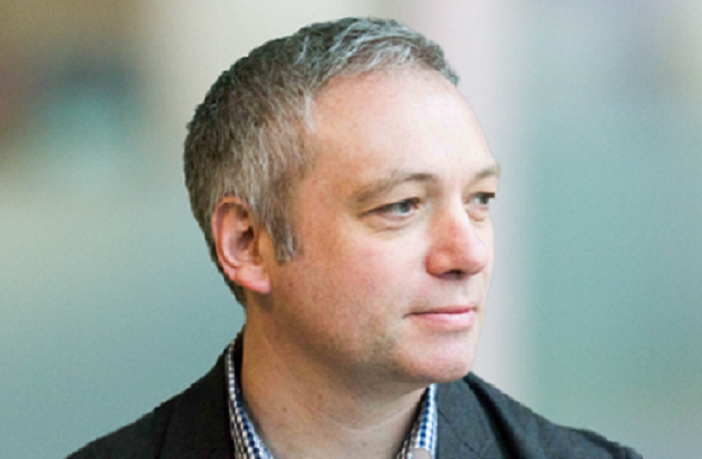Last month, Martin Weller, Professor of Educational Technology at The Open University delivered his inaugural lecture to an audience of over 200. As part of the OU’s 50th anniversary celebrations, Martin examined the meaning of the term ‘open’ and considered what an ‘Open University’ would look like if we were to invent it now.
 Martin has played an integral part in making the OU an online distance learning provider, introducing a number of programmes that have shaped the university. Having joined the OU in 1995 as a lecturer in Artificial Intelligence, Martin chaired the first major eLearning course, You, Your Computer and the Net, cementing his role as the first director of the Virtual Learning Environment (VLE). His research area is in open education and digital scholarship, which he regularly blogs about on Edtechi.net and is the subject of his two books, The Digital Scholar and Battle for Open.
Martin has played an integral part in making the OU an online distance learning provider, introducing a number of programmes that have shaped the university. Having joined the OU in 1995 as a lecturer in Artificial Intelligence, Martin chaired the first major eLearning course, You, Your Computer and the Net, cementing his role as the first director of the Virtual Learning Environment (VLE). His research area is in open education and digital scholarship, which he regularly blogs about on Edtechi.net and is the subject of his two books, The Digital Scholar and Battle for Open.
Martin discusses the milestones in The Open University’s history that have made it the open learning institution it is today.
“openness is core to our very identity, it’s in our DNA. I want to explore what that openness means.”
First steps into online…
In the late 90s Martin attempted to take the OU’s supported open learning model and adapt it into an online provision. For the first time, there were no printed units and all the students submitted their assignments as HTML pages. Even though there was some speculation, the trial was a success, and over 15,000 students signed up for the course. This demonstrated a major cultural change for the OU, as it shifted to online.
This led to the development of a number of institutional systems, so that by the mid-2000s an elearning policy could be implemented that mandated all OU courses had some online elements.
Moodle
During his time as VLE Director, Martin wanted to move the university towards using one universal system. With the support from others in the team, Moodle was implemented – a free open source learning platform that aids online teaching. Moodle can be easily adapted to suit the needs of the OU’s various courses, and is now a key part of the OU’s delivery. The OU is the largest contributor to the Moodle codebase and is used by 30,000 students every day.
Moodle still acts as the OU’s VLE, serving all courses and students across the university.
OpenLearn
 In 2006, Martin was part of a project to secure funding to set up OpenLearn – a platform for open education resources with a license that allows content to be used and modified elsewhere. At the time this was a real revelation, as it had always been perceived that content was king. With over 8 million visitors a year, OpenLearn has been hugely influential and a high percentage of students that have used the platform go onto to study with the OU. OpenLearn is now the biggest open education resource (OER) repository in the UK.
In 2006, Martin was part of a project to secure funding to set up OpenLearn – a platform for open education resources with a license that allows content to be used and modified elsewhere. At the time this was a real revelation, as it had always been perceived that content was king. With over 8 million visitors a year, OpenLearn has been hugely influential and a high percentage of students that have used the platform go onto to study with the OU. OpenLearn is now the biggest open education resource (OER) repository in the UK.
Open Access
Martin is currently working on a project with the Open Education Resource (OER) Hub team called UK Open Textbooks, which are openly licensed textbooks that are available for free digitally and at cost for print. This challenges the cost of textbooks and benefits those that study from a reading list, rather than just one book. He is also co-editor of JIME, an open access journal and has published two books as open access, under a Creative Commons licence.
The OU has supported open access publication across all units with the development of Open Research Online (ORO), allowing authors to deposit open access versions of articles.
Open Pedagogy
 The OU has scratched the surface of using open practices in teaching and is a member of OER University which is a global consortium of universities who submit courses as open education resources. OER changes the relationship between the student and knowledge, as instead of content being something that you consume, students can partake, change and alter content – it’s constantly growing and developing.
The OU has scratched the surface of using open practices in teaching and is a member of OER University which is a global consortium of universities who submit courses as open education resources. OER changes the relationship between the student and knowledge, as instead of content being something that you consume, students can partake, change and alter content – it’s constantly growing and developing.
Future of The OU
Until the 90s the OU had a traditional model which was successful at the time, but needed to develop to be able to work online and reach an even wider audience. Since then, the OU has been through many different stages and grown as an institution.
“If the OU innovates around what openness means in higher education, it will always stay current and relevant. I think openness helps shape our identity and also the identity of higher education.”
Find out more
Martin Weller, Professor of Educational Technology at The Open University
Watch Martin’s inaugural lecture in full
Read Martin’s blog for WonkHE about how technology has been used by the OU over the past 50 years.



